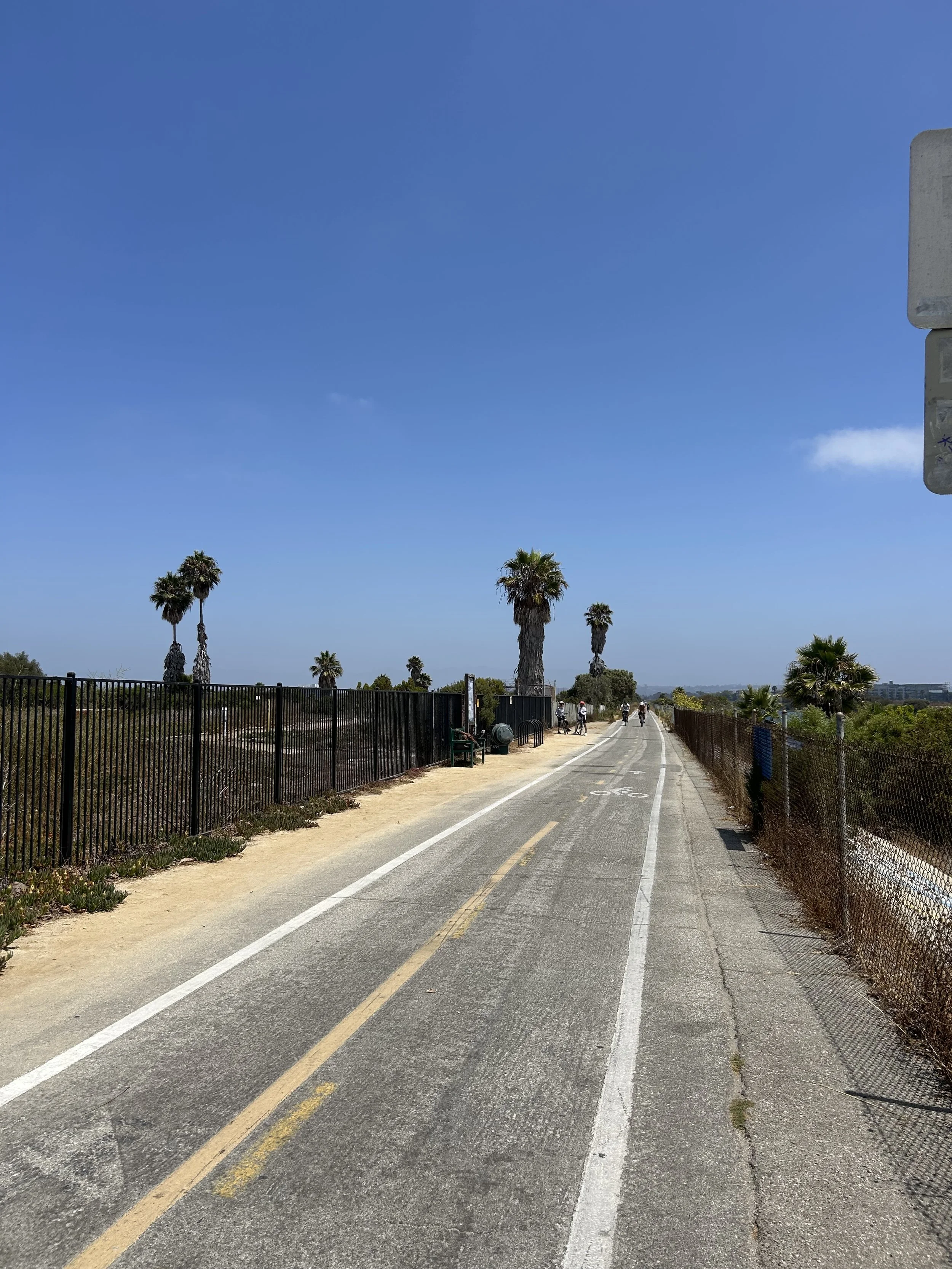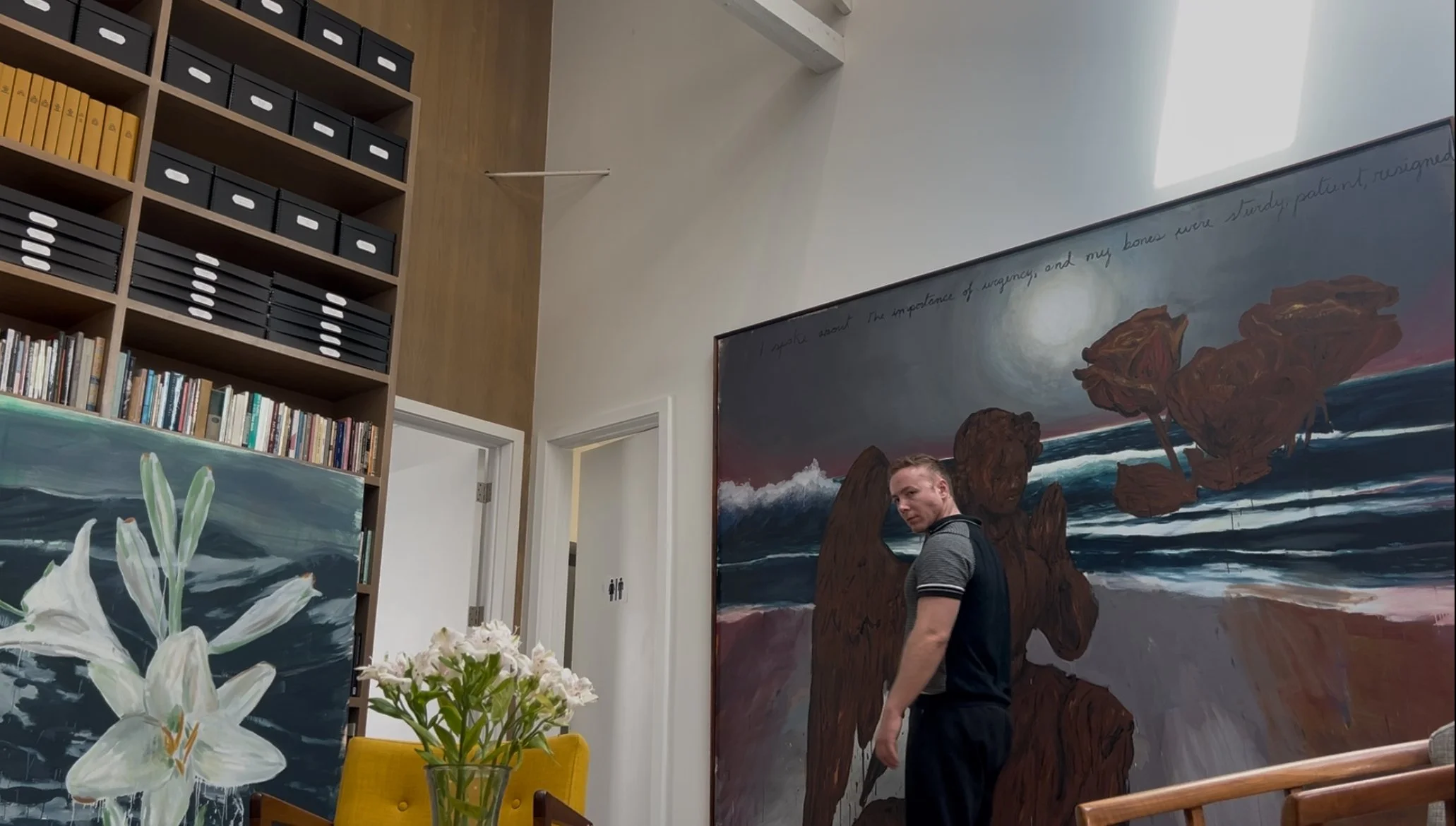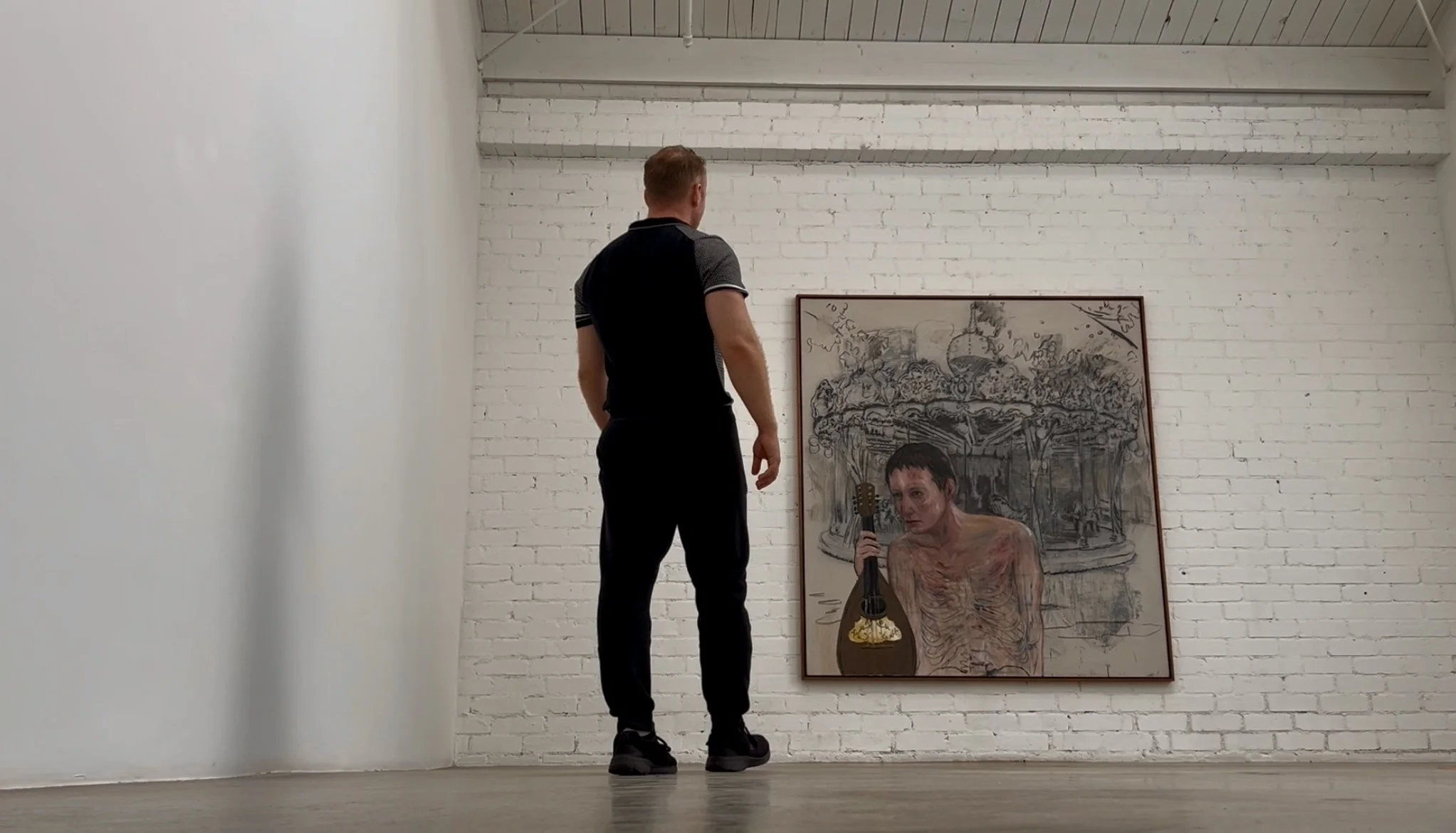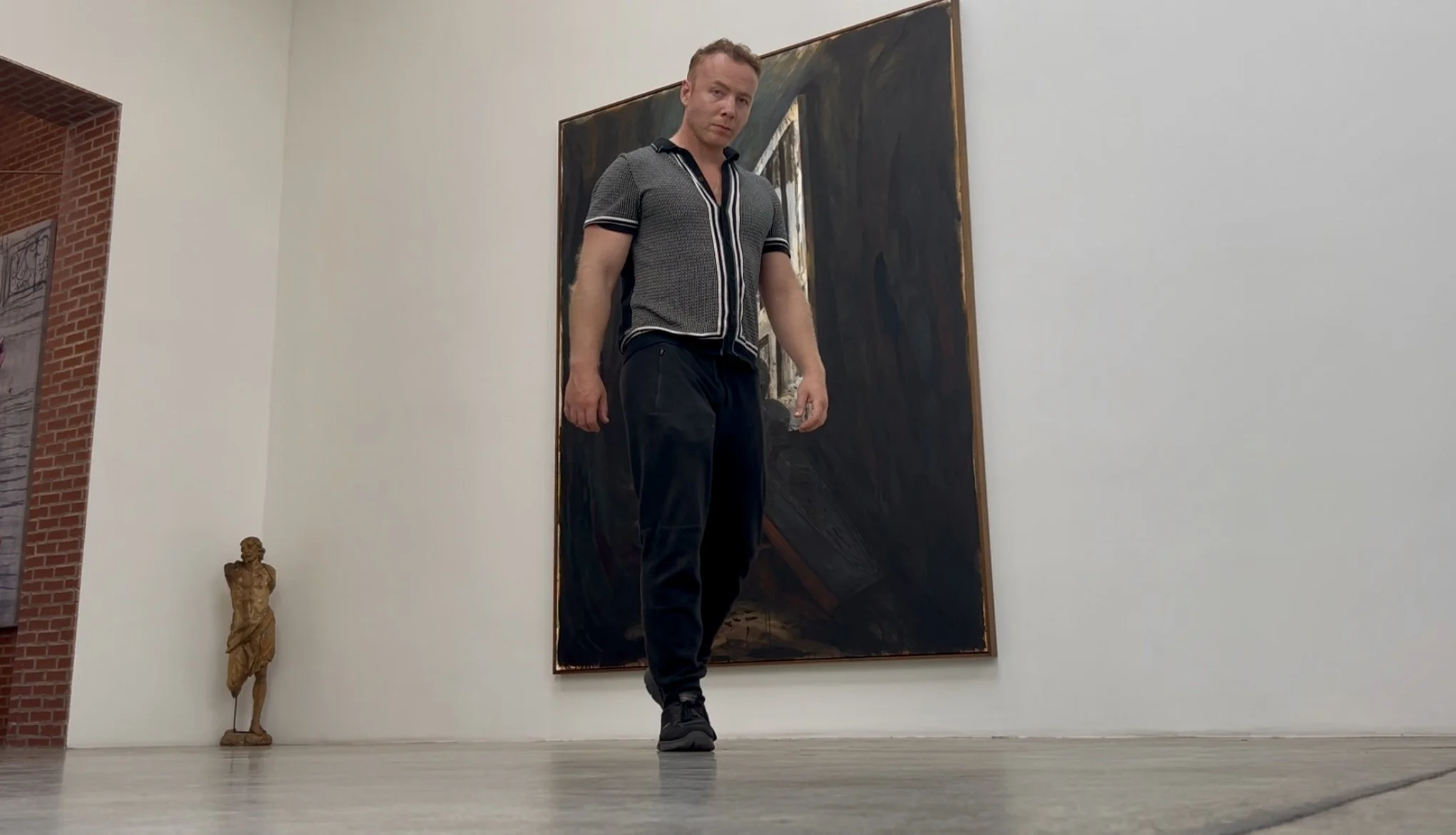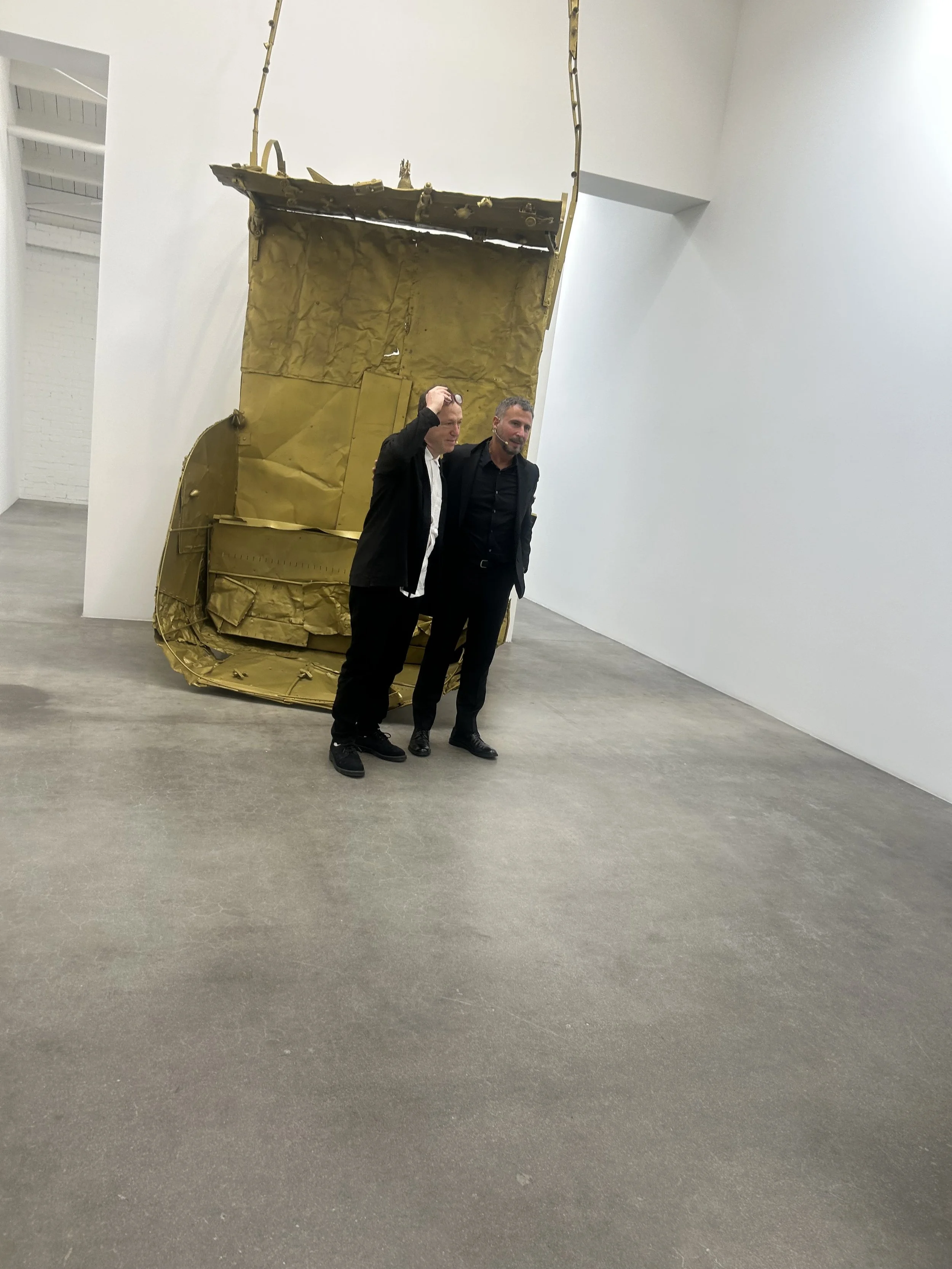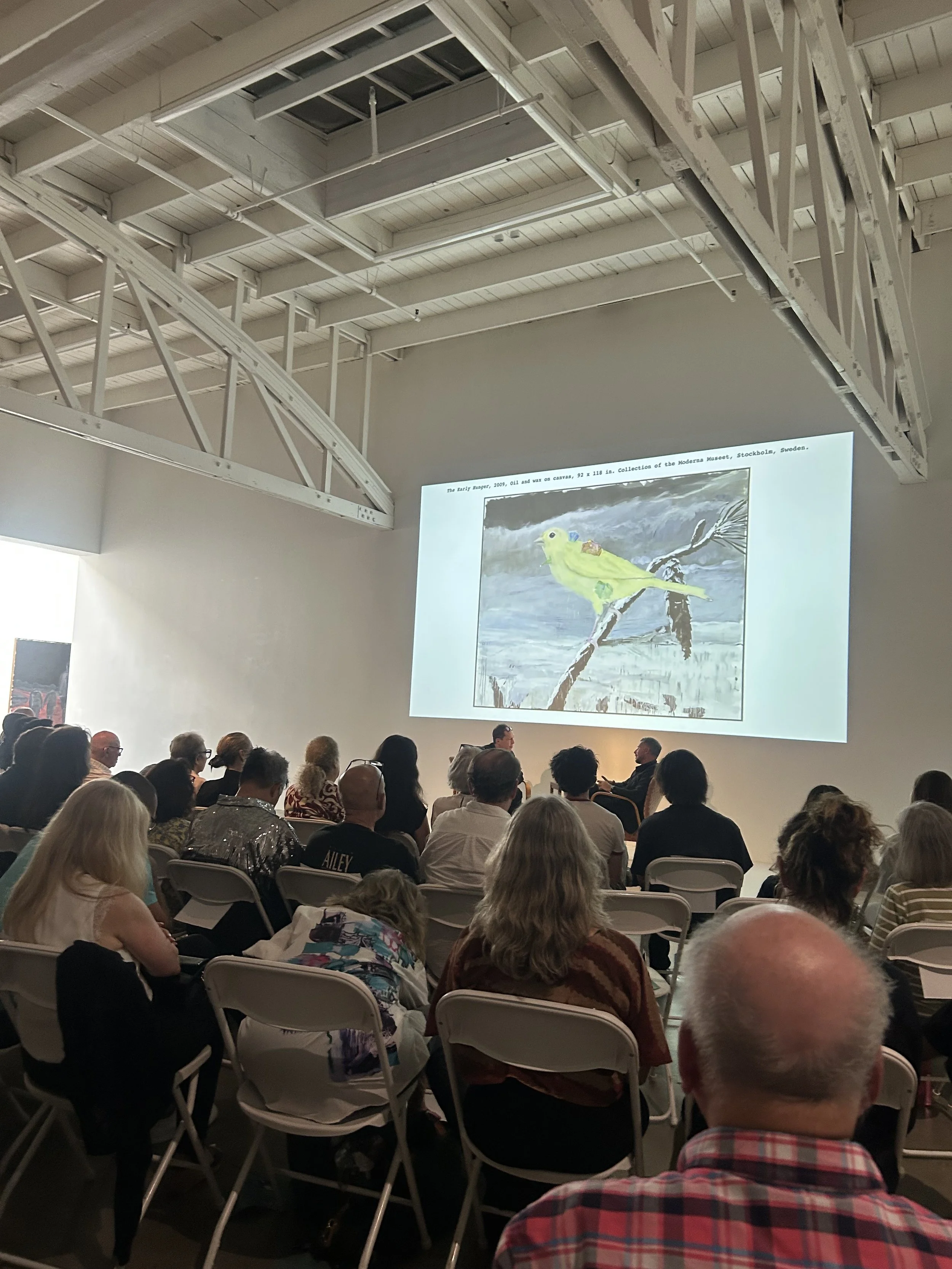Yesterday, after an early breakfast I cycled down the Ballona Creek Bike Path, I realised I’ve lived in Los Angeles for 15 years and there’s still so much I hadn’t discovered about this city. I listened to Beethoven String Quartet as I sped down under bridges by the creek, there were many birds all of the path. Perched and brooding along the wetlands there were Herons, Sparrows, Common Goldeneye Ducks and Egrets.
I got a text from my Sister who was visiting Monet’s house in Giverny with her family. We exchanged pictures of our respective views, as I cycled and she watched the sunset by the coast in France. I reflected how luck I was as I cycled past the green path by the edge of the river.
On the road, I stopped by The Village Well a book store in Culver City to read some TS Eliot before heading to Enrique Martinez Celaya’s talk at his studio with Paul Holdengraber. We found the oppurtunity to see Enrique’s new works. The first half hour of the discussion they talked about the poet Robert Frost and his apple orchard which he tended with his son Carrol Frost, which we had discussed in depth in March of last year with the art critic Lita Barrie.
That artists are professionally emotional and the difficulties that can come from identifying too much with the work without considering the audience. A relationship between the self that is true and a reflection of the self that is just a part of the crowd.
I came to a head with Enrique’s conception of art when he said that beauty is not a quest and that art is just an experience. Not to diminish the realm of experience. Though I find the fragmentation of Enrique’s work and ideas to be a great mental challenge for the paradox of dreams to occur. The utility for exhibitions like this and discussions around it result in life that is more beautiful and therefore more true once you step out of the experience and into life itself ~ carrying what remains with you into the proceeding days and weeks. Art is therefore both an experience and a memory.
There was a shimmering energy to the crashed golden sled which stood upright in the main entrance. Among the scraps attached to it were motorcycles and a rabbit, which sat alert inviting the viewer to chase it. But would the viewer? That is the question.
Oscar Wilde once wrote that higher criticism is a record of the soul. To write about it is to be the other half of the discussion which is presented by the artist. Who is not only contained within themselves, but does invite half of themself to half of another and somewhere between the two fortune is found.
